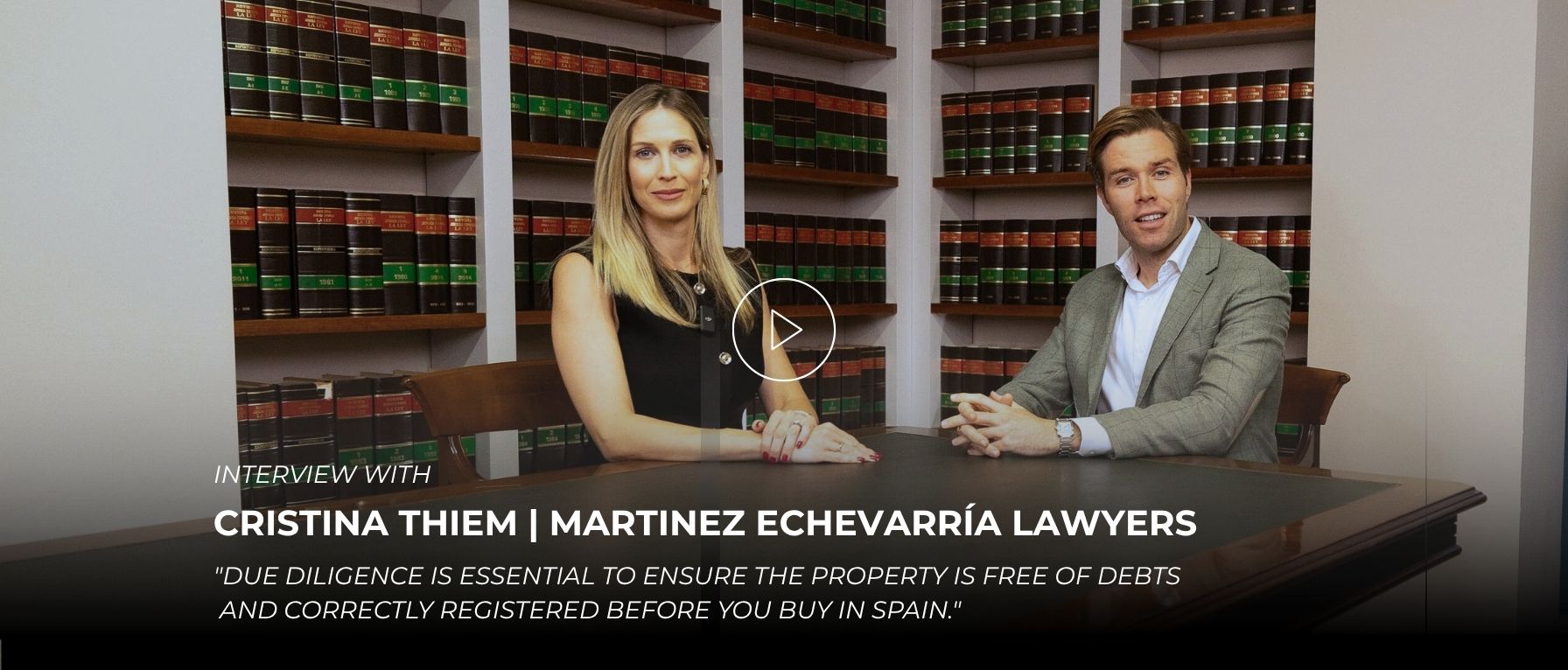
What do you need to know before buying a property on the Costa del Sol?
Buying a property in Spain, especially a luxury home on the Costa del Sol, can be one of the most exciting decisions of your life. However, it also involves a series of legal, financial, and administrative risks that must be carefully evaluated before committing. In this article, we share our experience on the risks when buying a property in Spain, how to avoid them, and what steps you can take to protect your investment wisely and safely.
The importance of buying safely
Before delving into detail, it’s essential to remember that a property purchase in Spain is not solely about the appearance or price of a home. The legal and planning security of the property is just as important—if not more so—and this is often where the most serious problems lie.
That’s why having the right guidance — including specialized real estate lawyers, experienced local agents, and qualified technicians — is not optional, but essential.
1. Hidden financial burdens: the most frequent risks when buying a property
One of the most common mistakes among international buyers is assuming that a home is free of debts just because it "looks in good condition" or because the owner claims everything is in order. This can be a serious mistake.
Common types of debts that can affect a property:
-
Outstanding or unpaid mortgages, which remain attached to the property even if it changes owners.
-
Foreclosure proceedings, legal actions already initiated by banks to repossess the property.
-
Administrative or judicial embargoes, such as debts with the Tax Office, Social Security, or even the homeowners’ association.
This information must appear in the Property Registry's nota simple, a key document in any real estate transaction.

2. Sales prohibitions: when a property legally cannot be transferred
Another delicate — and less known — situation is the existence of judicial sales prohibitions. These are court orders that temporarily or permanently prevent a property from being sold, usually due to lawsuits or the owner’s debts.
How can they be detected?
These prohibitions are also registered with the Property Registry. Therefore, a prior legal review of the nota simple is crucial. If the property has a current prohibition, the sale simply cannot legally proceed, and any deposit paid could be at risk.
3. Urban planning issues: the invisible risk
Especially in tourist areas like Marbella, Benahavís or Estepona, many international buyers are surprised to discover that the property they purchased does not comply with local planning regulations.
Some of the most common irregularities include:
-
Works carried out without municipal licenses.
-
Buildings outside of planning or on non-developable land.
-
Construction that exceeds the allowed buildable area.
-
Properties affected by pending or revised planning regulations.
These irregularities don’t always prevent the sale, but they can limit future renovations, make it difficult to obtain financing, or even require partial demolition.
4. Differences between reality and the Registry: the “missing” square meters
In theory, a home’s built surface area should match across the physical structure, the land registry, and the Property Registry. But in practice, this is not always the case.
This may happen due to:
-
Unreported renovations.
-
Unregistered expansions.
-
Historic errors in the deeds.
A mismatch between the physical reality and the registry may cause issues when:
-
Selling the property in the future.
-
Obtaining mortgage financing.
-
Complying with legal requirements in cases of inheritance, division, or donation.
5. How to protect yourself against these risks when buying a property
The good news is that all these risks can be prevented by acting rigorously and with the support of a specialized professional team. At FM Properties, we not only accompany our clients throughout the buying process: we work hand in hand with the best real estate lawyers on the Costa del Sol to ensure that every transaction is carried out with full legal guarantees.
What is real estate due diligence?
Due diligence is a thorough review process carried out by a lawyer specialized in real estate law. Its goal is to ensure that the property:
-
-
Is free from charges and debts
-
Can be legally sold
-
Complies with urban planning regulations
-
-
Matches physical reality with registry data
-
Has no hidden defects or existing contracts
This analysis includes reviewing the nota simple, licenses, community payments, built area, and the urban planning status with the local council. In short, it helps detect any issues before proceeding with the transaction.
At FM Properties.es we work with top-tier legal firms that carry out these due diligence checks quickly, thoroughly, and transparently. For our clients, this means buying with peace of mind and no surprises.
Conclusion
Buying a property in Spain takes more than a good aesthetic choice or a privileged location. It requires diligence, analysis, and — above all — a clear understanding of the legal and registry risks that may affect the transaction.
legal risks when buying a property in SpainIf you’re aware of these risks and supported by the right professionals, you’ll enjoy your investment with the peace of mind that comes from taking all the necessary precautions. At FM Properties.es, our mission is to help you buy with confidence, backed by the best legal and technical experts.
👉 And if you want a clear overview of the entire buying process and a better understanding of what real estate due diligence includes, don’t miss our Buyer’s Guide.
Frequently Asked Questions (FAQ) – Legal Risks When Buying a Property
1. What debts can affect a property in Spain?
Mortgages, judicial or administrative embargoes, and debts with the Tax Agency, Social Security, or the homeowners’ association can all affect the legal validity of a purchase.
2. What is a sales prohibition, and how does it affect me?
It’s a legal order, usually judicial, that prevents a property from being sold until the underlying issue is resolved.
3. What does a lawyer check during due diligence?
They review ownership, debts, urban planning status, licenses, built area, community payments, and any hidden legal or technical issues.
4. What if the square meters don’t match the registry?
It must be corrected through official registration. Otherwise, it can affect future financing, renovations, or resale.
5. Where can I check all the information about a property?
In the Property Registry, the local Town Hall, and with the help of a specialized lawyer who conducts full due diligence.

